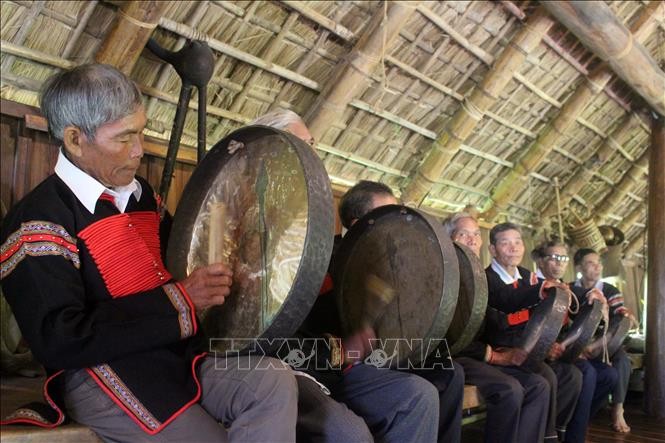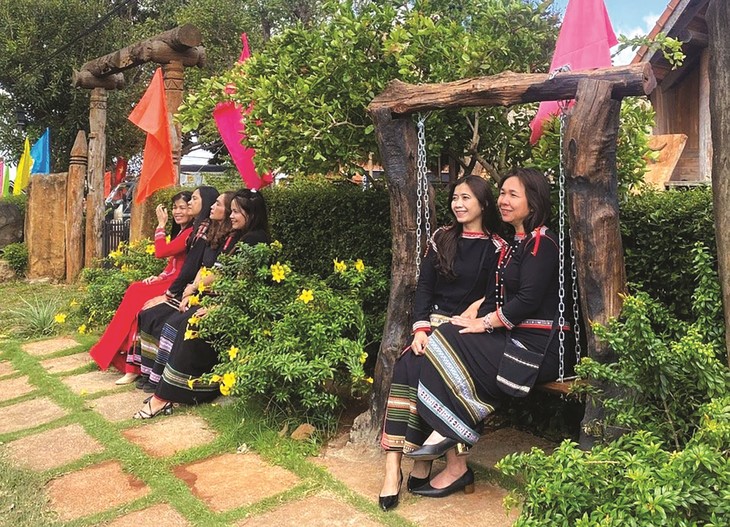(VOVWORLD) - Visiting villages inhabited by the Ede ethnic minority in the Central Highlands, you can immerse yourself in the unique cultural values of the local people. Ede village chiefs and elders, and artisans in Dak Lak province are working diligently to preserve their cultural treasures.
 A gong group of Ako Dhong village in Buon Ma Thuot City (Photo: Hoai Thu/ VNA) A gong group of Ako Dhong village in Buon Ma Thuot City (Photo: Hoai Thu/ VNA) |
The music group in Sut M’dung village, Chu Se commune, often gather between crops to practice playing the flute and gongs and singing epics. These performances serve not only local people but also tourists.
According to Pham Thi Thu, Vice Chairperson of Chu Sue Commune, the local authorities are working with the people to preserve their culture.
“Material life must go hand in hand with culture. After a hard working day, people gather to play the gong. Many local children gradually join us. We hope to receive more government support,” she said.
Ako Thong in Buon Ma Thuot city is one of the most attractive Ede villages in Dak Lak province with more than 30 long houses sitting under the cool, green canopy of trees. The Ede people here have adapted to modern life but still keep their traditional cultural values intact with stilt houses, wharves, and the gongs.
 Tourists take photo with local women in Ako Dhong village. (Photo: daidoanket.vn) Tourists take photo with local women in Ako Dhong village. (Photo: daidoanket.vn) |
The Ede in Ako Thong once intended to demolish and replace traditional wooden long houses with modern ones. Then, late village chief Ama H’Rin and local authorities persuaded local people to keep their traditional cultural values.
Vu Van Hung, Chairman of the Buon Ma Thuot city People’s Committee said preserving and promoting national cultural identity are key tasks in the locality’s strategy of cultural development.
“We have adopted a resolution on this issue and worked on a plan to preserve and promote the cultural identity of ethnic people in 33 Ede villages,” said Hung.
Dak Lak provincial authorities have implemented scores of programs, including training and teaching the intangible culture in villages, reenacting some traditional community rituals, and helped local people develop community tourism.